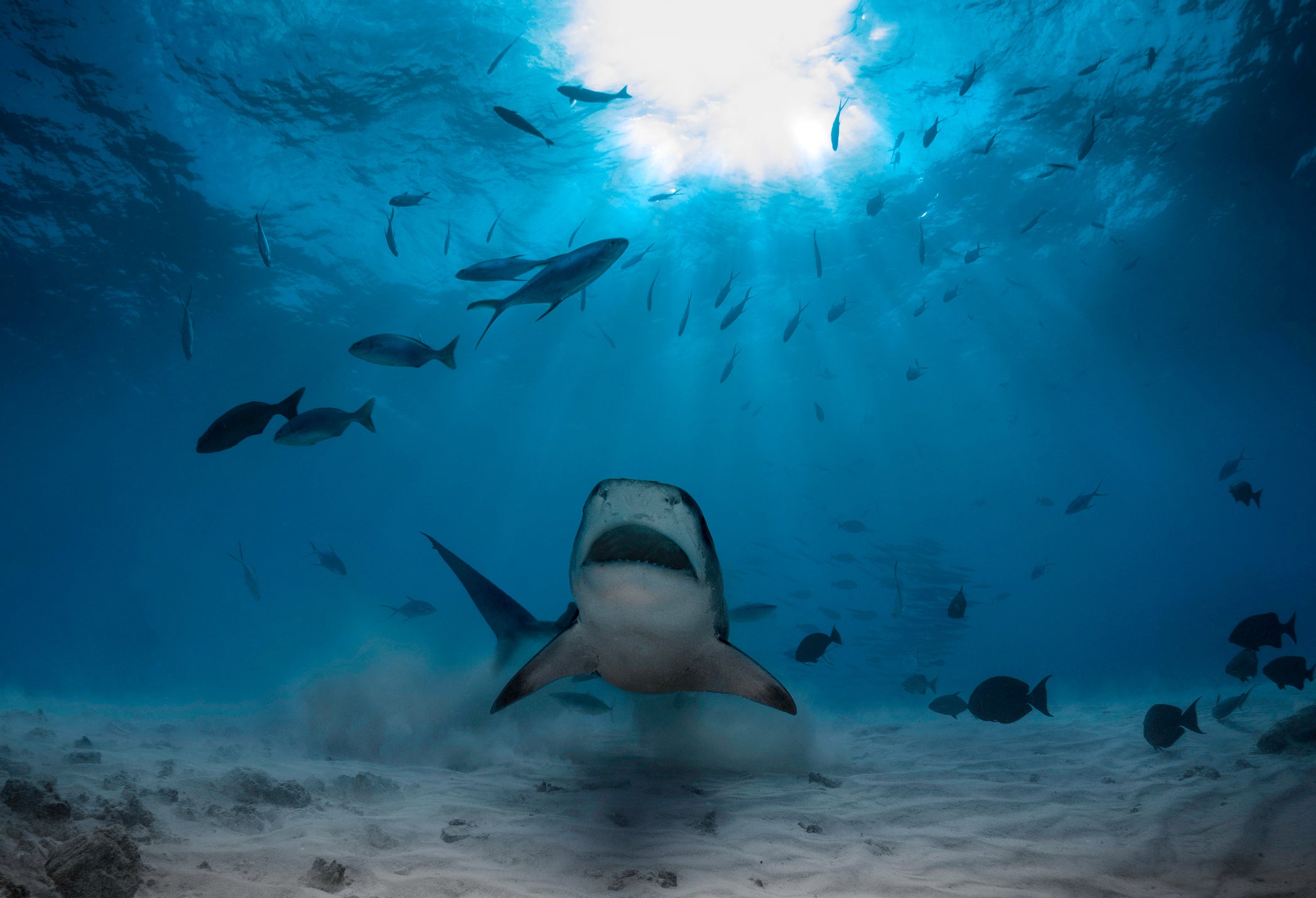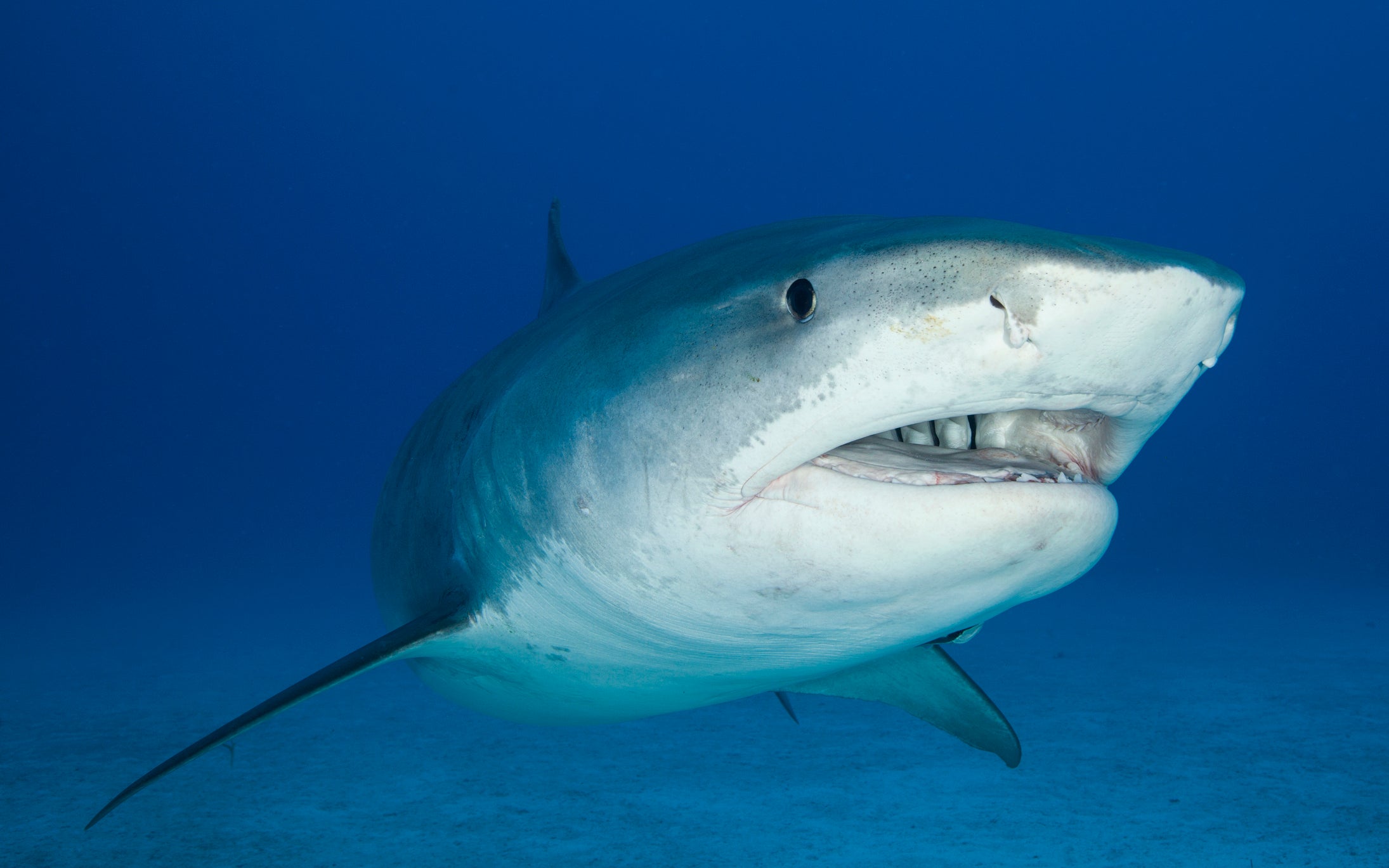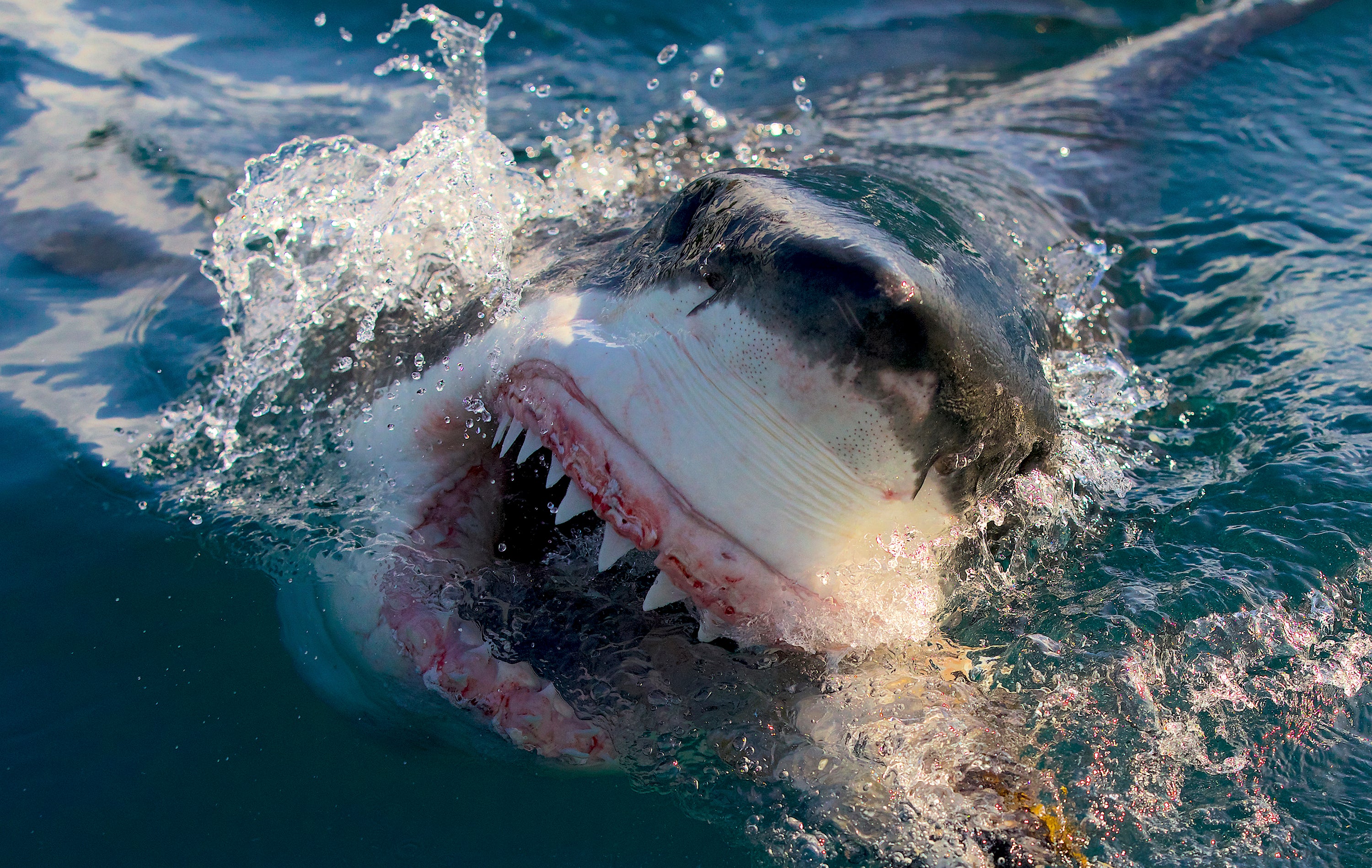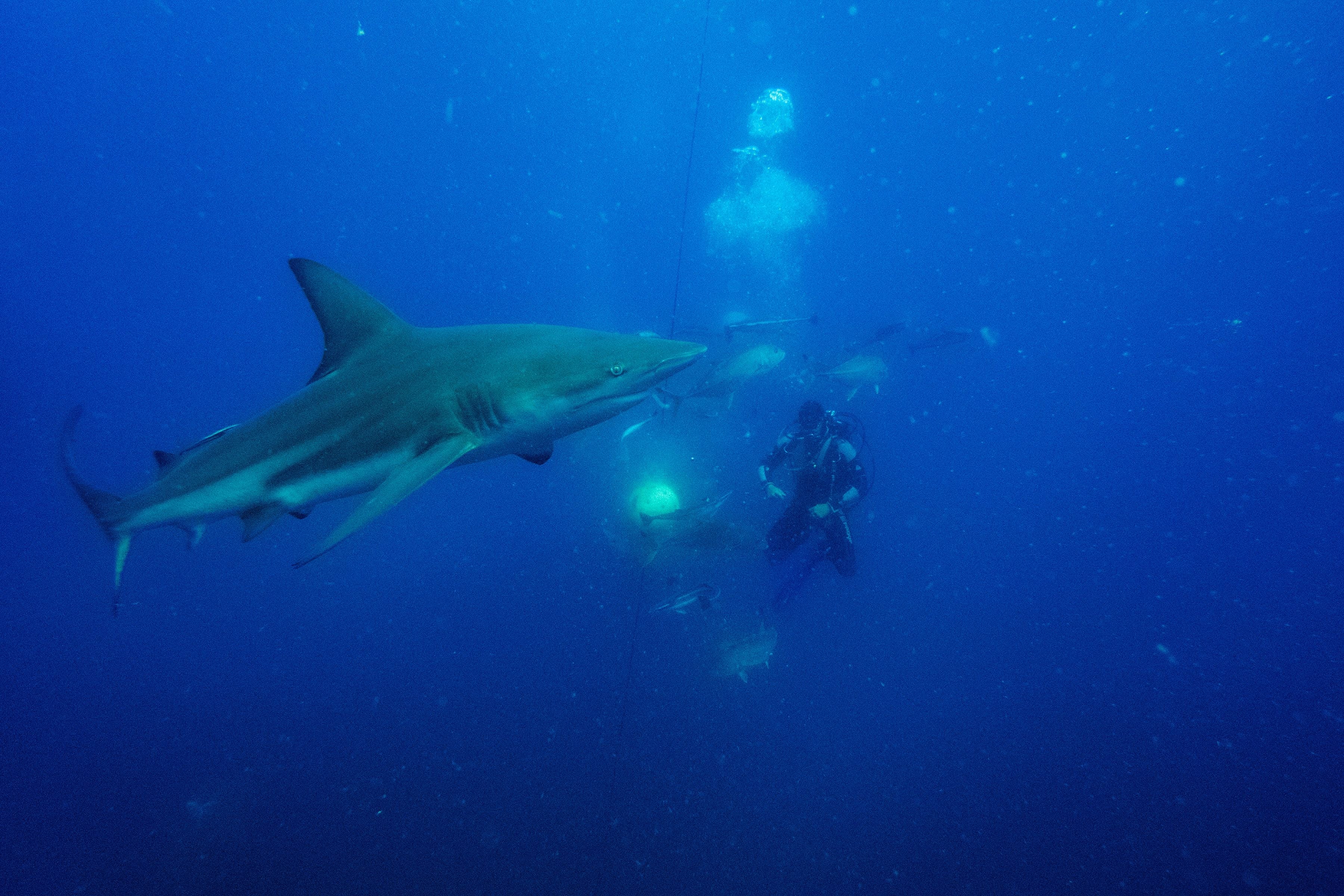Why do sharks attack humans?
Last year there were 57 unprovoked shark bites on humans and experts say these incidents may be increasing due to the impacts of global warming and habitat damage, writes Faiza Saqib


Shark attacks can be a rare occurrence, but the BBC’s latest documentary ‘Why Sharks Attack’ has no doubt caught the eyes of many, sparking questions and fears of shark attacks while swimming in open waters.
During the filming of the show, a sudden shark attack took place at Sahl Hasheesh Resort in Eygpt in 2022. Elisabeth Sauer, 68, was named as the victim and was said to be snorkelling in shallow water less than two meters deep when she was bitten. Ms Sauer did not survive the attack and was pronounced dead before reaching the hospital.
This year, a 23-year-old Russian tourist named Vladimir Popov also lost his life after being mauled to death by a tiger shark off Eygpt’s Red Sea resorts.

Video footage of the man was taken from the beach appearing to show him screaming as the attack unfolded.
So far this year, there have been 46 publicly reported shark attacks, seven of which were fatal, according to TrackingSharks.com.
And so, the question remains - why do sharks attack humans? Here’s everything we know:

Why do sharks attack humans?
According to the Shark Research Institute, there are over 400 plus species of shark around the world, which include great white sharks, tiger sharks and bull sharks.
Roger Tabor, a biologist, naturalist and broadcaster, tells The Independent that the bull shark has been linked to an “increase in attacks on surfers in the USA”. He said these attacks are “not so likely to be fatal, but [the shark] will take limbs.”
Mr Tabor says the likelihood of being attacked by a shark is quite low and the risk of drowning is “some 4,000 times greater, and even being killed by a cow is more likely than by a shark, as is the way with statistics cows and waters are far more widespread across the landmass.”
However, there are certain areas which may have a higher shark population which therefore “increases the probability of contact”.
Shark attacks are often put into different categories: provoked and unprovoked. According to the Shark Attack Files, backed by Florida Museum, worldwide last year there were a total of 57 unprovoked shark bites on humans and 32 provoked bites.
The International Shark Attack files reported over 500 unprovoked shark attacks between 2010 and 2019.
“Unprovoked bites” are defined as incidents in which a bite on a human occurs in the shark’s natural habitat with no human provocation of the shark.
“Provoked bites” occur when a human initiates interaction with a shark in some way. For instance, when divers are bitten after harassing or trying to touch sharks.
Mr Tabor tells The Independent: “There is no evidence to show that sharks specifically hunt people. Most sharks go for small prey, so it is only large species that have behaviour profile to attack larger prey, and specifically mammals.”
In a paper published by Eric Clua, a marine biologist and Carl Meyer, a biologist at the University of Hawaii, in the Brill Journal, they look at the Mistaken Identity Hypothesis (MIH).
The MIH theory interprets shark bikes on surfers, swimmers and snorkelers as “mistakes”, which typically means that sharks might confuse humans for their typical prey.
Mr Tabor says surfing has previously been linked to shark attacks due to the “sudden movement, similar to an animal suddenly retreating, or bright parts of wetsuits reflecting looking like a fish or similar in itself, can cause a response in the visually oriented great white.”
The paper says that although MIH may now be “widely” accepted by the general public and the scientific community, there are still some unknown gaps.
“This hypothesis assumes that ‘mistaken’ shark bites on humans result primarily from confusing visual cues and ignores the important role of other senses (e.g. hearing) in discriminating potential prey,” the paper says.
However, the authors of the paper also note that shark bites which occur in clear water cannot always be explained by MIH. It adds: “Simply stated, sharks don’t make ‘mistakes’ but instead continually explore their environments and routinely investigate novel objects as potential prey by biting them.”

In 1984, Timothy Tricas and John McCosker, authors of the paper Predatory Behaviour of the White Shark, note that “shark attacks the surfer because it mistakes his silhouette for that of a seal,” giving more weight to the MIH theory.
But Mr Clua and Mr Meyer argue that the “MIH remains at best an unproven hypothesis.”
Global warming and habitat damage
Mr Tabor tells The Independent that climate change may be the reason for seeing an increase in shark attacks.
He says: “People are very recent on the planet compared to sharks. Humans, 2 million years, even the ancestor of chimps and ourselves only takes it back to 6 million years ago, while sharks go back an incredible 450 million years. Seals only go back 23-24 million years and dolphins/porpoises go back twice that, not as much as sharks, but they have shared the seas a lot longer than ourselves with sharks”.
Mr Tabor adds that marine mammals “spend much more time in the sea than we do on beaches, so are far more likely to be prey,” and so, “global warming and habitat damage can move marine species including seal group & sharks. That can bring larger sharks more into contact with beaches with people, (as they have been for longer with seals).”
How can I reduce the odds of a shark bite?

The Flordia Fish and Wildlife Conservation Commission has put out advice on how people can protect themselves and reduce the chances of getting bitten - it says:
- Stay in groups since sharks are more likely to bite if you are alone
- Do not wander far into the water - especially without assistance
- Avoid entering the water with an open wound if you are menstruating as sharks can often smell blood
- Swim in areas tended by lifeguards
- Do not enter the water in areas where it is known that sharks are present
Dr James Lea, CEO of the Save Our Seas Foundation tells The Independent the chances of being bitten are incredibly low, but if and when they do happen the “vast majority of bites are non-fatal, but they can of course have tragic consequences.”
Therefore, Dr Lea says: “It’s always important to be aware of risks when using waters where you may encounter sharks, and there are a few things you can do to help reduce any risk of a negative interaction.
“It’s important to swim where lifeguards are on watch, or if you have them any local programmes like Shark Spotters - they can help raise the alarm if needed and help is on hand. Swimming in groups can reduce risk, and try not to swim near diving birds or schools of fish - predators like sharks may have herded them nearshore to feed.”
Dr Lea also says people should try and avoid swimming at “dawn and dusk - these are often times sharks are actively hunting as they take advantage of low light conditions.
“Make sure you don’t swim near any fishing activity, especially if they are using bait. Things like not having or covering lots of shiny jewellery can also help, as a lot of sharks are quite visual predators looking for shiny fish.”
And last but not least, “don’t stray too far from shore, and avoid excess splashing,” Dr Lea adds.
Join our commenting forum
Join thought-provoking conversations, follow other Independent readers and see their replies
Comments


Bookmark popover
Removed from bookmarks